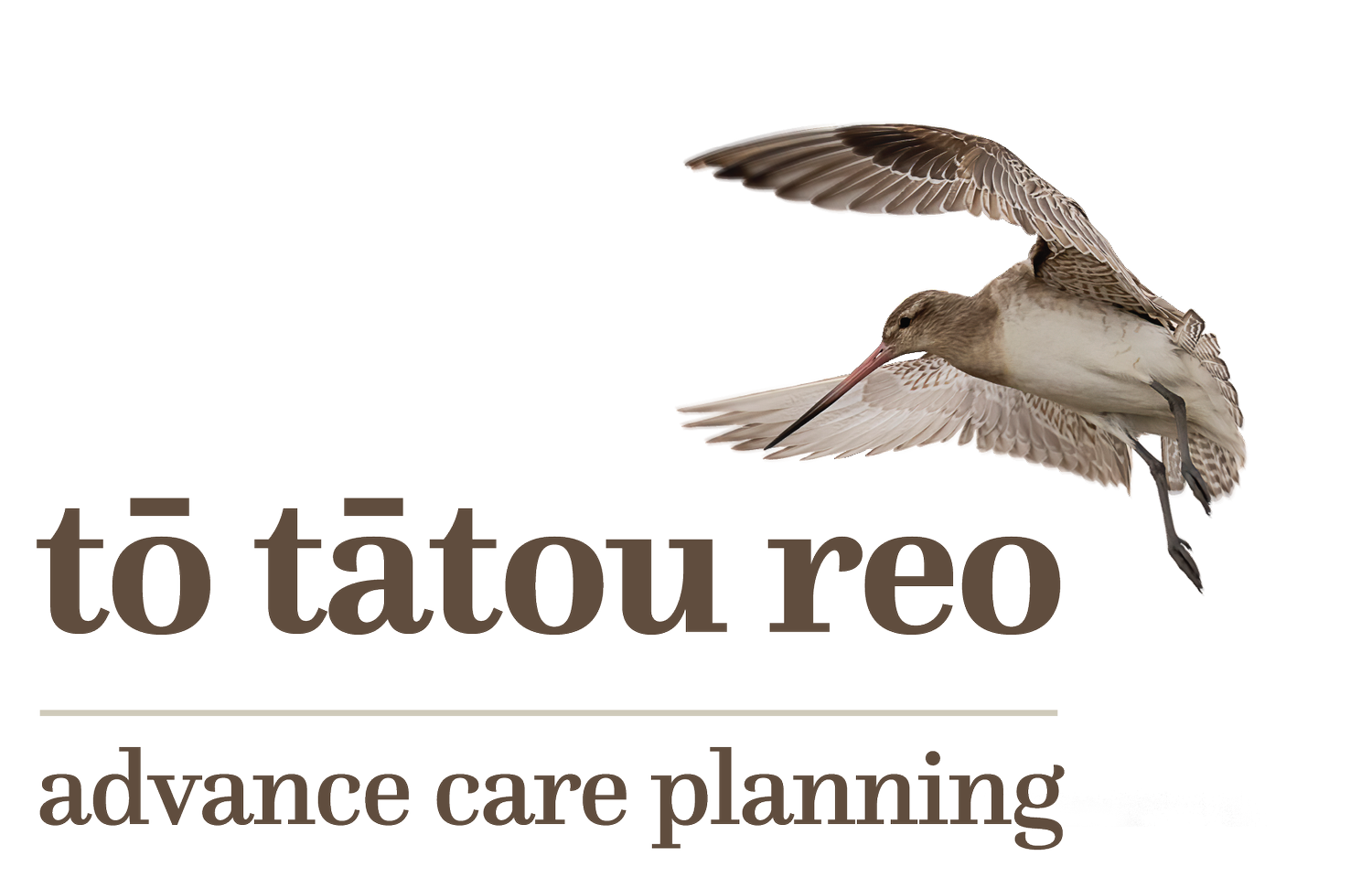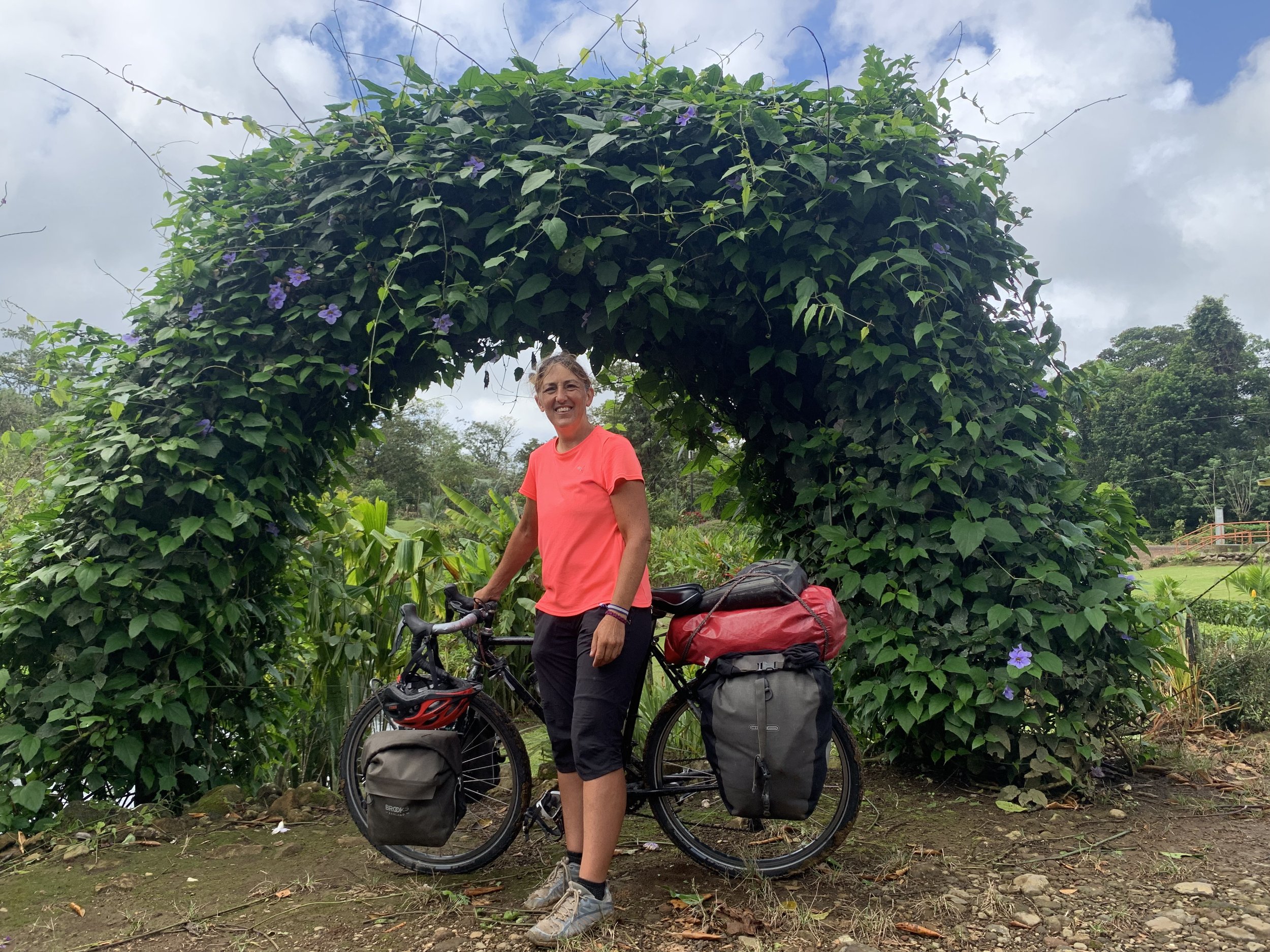Tips for clinicians from the other side of the plan
Content notice: This article deals with sensitive topics including death and cancer
Nurse practitioner Carla Arkless is a familiar face to many, with more than 20 years’ experience working across palliative and advance care planning circles in Aotearoa.
She is now making the most of the support her own plan provides after a cycling trip was cut short by a terminal cancer diagnosis.
Supporting patients to think about their values, goals, and preferences for health care and end-of-life has given Carla a unique perspective on this chapter in her life. It has helped her focus on living and what brings her joy, and she has shared her story to help others do the same.
Illness is part of life’s journey, not a new identity (myacp.org.nz)
From globe-trotting to supporting palliative care in New Zealand
Carla was born and raised in the UK and trained as a registered nurse straight out of school. After travelling and doing agency work for a few years, she started working at a hospice in Essex, where her career in palliative care began.
She was drawn to Aotearoa after visiting on a backpacking trip with her then-four-year-old son, Sean. When Sean was seven the pair moved to the South Island, where she worked in the hospice and aged care sector across Southland and then in the Nelson Tasman districts.
Carla was one of the first trained to deliver advance care planning communication skills workshops and was a national trainer for the advance care planning programme. She supported the development of advance care planning and shared goals of care in Nelson until she left to cycle the world in December 2021.
Carla on tour in Costa Rica
Putting patients in the driving seat
Carla was drawn to the concept of advance care planning early in her palliative care career when she started to recognise patients were not always in the driving seat when it came to their health care journey. ‘Nobody had ever asked them what they would want to happen if they got more unwell or had an acute event and so, if a crisis occurred, it would often cause additional stress for the family and patient.
‘I started to ask people about their priorities, before I even knew the term advance care planning, so when I saw an opportunity to get involved in the national advance care planning programme, I jumped at it.’
When things don’t go to plan
Carla’s cycling adventures took her from Southern Europe to Turkey before flying to Canada then cycling down through the US, through Mexico and Central America to Colombia.
From Colombia, her plan was to cycle all the way down to Ushuaia in Patagonia. However, abdominal pain meant she only managed to cycle for three days before becoming too unwell to continue. She was diagnosed with kidney stones.
‘I got the bus to the nearest big city, Medellín, and then flew back to London to recuperate for six weeks before heading back to continue – at least that was the plan.’
After about a month of being back in the UK Carla began to suspect there was something more going on than kidney stones.
The initial CT scan showed an ovarian mass. After further tests Carla was diagnosed with ‘pseudomyxoma peritonei with pleural involvement’ – a rare kind of cancer that usually originates in the appendix. ‘At some point the cancer cells are released into the abdominal cavity where they slowly multiply and in my case eventually attached themselves to my right ovary.’
Carla’s choice
Carla was referred to a specialist team in the UK and saw a surgeon in early June.
‘I was offered extensive, non-curative surgery with a 3–5-month recovery time, which may have given me up to a couple of years problem-free. There were no guarantees, and the cancer would re-grow at some point. Without surgery he said I would run into real problems with nutrition in 1-2 months and have a likely prognosis of 3-6 months.’
Carla chose not to have the surgery, and instead to focus on palliative care.
‘Time was not something I felt I needed to extend at all costs. I’ve done a lot of living and if time was short, then that was okay with me – although my preference was definitely not to die just yet! This is something I had thought about while writing my advance care plan, which very much helped with the actual decision-making.’
Learning her wishes hadn’t changed
Carla developed her written advance care plan more than 10 years ago when the first national template came out and had it signed and uploaded into the digital South Island system in 2019.
She has reviewed it a few times but made very few changes since she first filled it out, even after the cancer diagnosis.
‘That was very interesting for me, as you never really know how you will react to a situation until you’re in it. Of course, I imagined the scenario of being diagnosed with a terminal illness many times (fallout from being a palliative care nurse I think!) and I have essentially reacted the way I thought I would.
‘The palliative care physician I first saw here was very interested in how I reacted in reality compared to how I imagined I would – he seemed reassured by the fact it was the same!
Carla acknowledges her professional clinical experience has made this journey significantly easier for her, but the advance care planning process still helped enormously.
‘Without the advance care planning process, it would still have been much more difficult for me, and also my son. The fact I have been very clear about what I want, and he had the opportunity to consider it all and ask questions when I was well, made it much easier once I became ill – he also had a starting point, a foundation on which to ask more questions.
‘So far, I have shared my advance care plan with several health care providers who have all been very impressed with the format and content. They don’t have a national equivalent in the UK.’
Carla’s tips for health care staff
Find ways to bring up advance care planning when a person is well - Carla encourages systems and processes that allow advance care planning to be brought up when a person’s well, for example new patient visits in primary care or routine screenings.
Start broad – When people are well, it can be good to start with generalisations, Carla says. ‘The detail of what they would want to happen if they find themselves unable to direct their own care is useful, but not essential to start with if they don’t want to think about that. The detail will often fall out of ‘general’.
Encourage people to focus on living – ‘I would also say, that for everybody, whether well or with a serious illness, I would encourage them to focus on LIFE – on living,’ Carla says. ‘What matters to them in the living world, not just in the context of their illness. We know that people do much better if they feel positive – so thinking about wellness, and living well, being happy and joyful – that’s important as part of wellbeing – the illness context comes out of that, as secondary.’
Make a point of checking for an advance care plan, and let the patient know you have it – ‘I think for people who are seriously ill, particularly around the time of diagnosis and when going through investigations, it feels very reassuring to know that their health care team has some knowledge about who they are and what matters to them – so I would really encourage all health care professionals in acute settings and anywhere where a new diagnosis or ‘bad news’ might be shared, or investigations for serious illness ordered, to make a point of checking for an advance care plan. Make sure to add it to their notes and let the patient know you’ve done that.’
Ask people if they want to review their plan – This shows patients that ensuring you have up-to-date information to support them is important to you. ‘Even though I have all this health care knowledge, and I’m very clear about what’s important to me, I still felt very reassured when health professionals took an interest in my plan, and even better when they read it! I think it can go a long way to relieve anxiety, which of course will also help patients feel more well and in control.’
Share information (with permission!) – Finding ways of sharing advance care planning information amongst team members and between teams, with a patient’s permission, can also reassure patients that their views and preferences matter, Carla says. ‘When you are a patient in the health care system, it is very easy to get in a bit of a rut. Your identity alters – you become a ‘patient’ before a human being if you’re not careful. We get so wrapped up in the illness journey, we forget to also live life. If health care staff know about who a patient is as a human being, it helps everybody to not get swallowed up in just the illness journey, but to think of the illness as part of their life journey instead. This enables people to focus on wellness and the good things in life, as well as deal with the illness and all the negativity that goes with that. We know that this kind of outlook means people do better and are less anxious. I think advance care planning is a good opportunity to support this.’
ResourcesCarla was central to much of Tō tātou reo advance care planning training mahi and aged residential care-specific resources. You can view some of the work she has contributed to here:
Aged residential care-specific advance care planning resources

